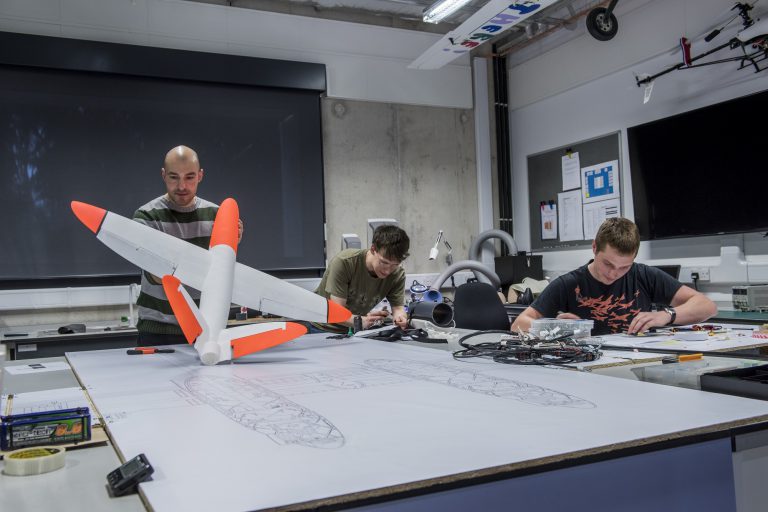
Times are rapidly changing in the midst of the digital age, with the introduction of brand-new jobs that were never available a decade ago. App Developers, Web Developers, Social Media Executives, and the list goes on and on! With the evolution of technology, students are re-evaluating their career choices in fear that their dream jobs may no longer be in demand by the time they graduate. But recent reports have shown that if your interest lies in engineering, you’ve genuinely got nothing to worry about…
Engineering may be one of the oldest jobs in the labour market but that hasn’t stopped its qualified graduates from being some of the most sought after; in fact, according to Forbes, the demand for engineers continues to increase – fantastic news for prospective students and fresh graduates around the world. While a new report by the Engineers Australia has mentioned that out of all STEM (Science, Technology, Engineering and Maths) subjects taken, engineering graduates tend to fare the best, with almost 70 percent finding a full-time job within four months of completing their degree.
In fact, The Wall Street Journal has reported that the demand for engineers is actually more than the supply, fantastic news for anyone with an interest in pursuing an engineering career. But despite the demand, employers are still finding it difficult to find the right person for the job. A recent survey by career website Monster discovered that employers are not confident they will be able to hire, despite consistently citing a lack of qualified candidates.
![University of Southampton graduate]()
University of Southampton graduate of 2016, Jennifer Crunden. Image courtesy of the University of Southampton
With a competitive market and thousands of engineering graduates fresh out of university each year, it’s important to make yourself desirable (work-wise, of course!) and impress the socks off your future employers with a powerful curriculum vitae (CV). Here are five ways to turn yourself into an employable engineering graduate:
1. Get involved in practical projects
It’s not enough to attend lectures and ace your exams whilst at university. You need to be proactive – get involved in any work that might help bring you closer to your dream job. At the University of Southampton, for example, practical applications are integral to the study of engineering, providing students with hands-on experience in their state-of-the-art facilities.
Students in the Faculty of Engineering and the Environment frequently attend design tutorials and workshops, as well as undertaking a major group design project in their fourth year. To find out more, visit the Design Show blog to see examples of work from Southampton’s previous students.
What is the Design Show?
Hosted by the University of Southampton, it’s an annual event held to showcase the innovative and ambitious work of their engineering students. Several projects are shortlisted to pitch directly to an industry panel. This year’s panel consists of representatives from ARUP, BAE Systems, Jaguar Land Rover, Shell and Siemens. This represents an invaluable opportunity to meet key industry players and get an insight into their companies.
![annual design show]()
Showcasing students’ project work at the annual Design Show. Image courtesy of the University of Southampton
2. Do a placement or work experience
We can’t stress how important it is to get work experience on your CV. Employers are more inclined to choose someone who knows what it’s like to work in the industry, even if it was only for a short period, rather than a fresh graduate with zero experience. The University of Southampton understands this perfectly, creating the Industrial Placement Year for those studying a Master of Engineering degree.
Students take a year away from their studies to work in an engineering-based organisation and will have their placement recognised on their degree certificate. This placement takes place between the second and third year, extending the degree to a total of five years. Students fulfil the role of trainee engineer on a full-time basis, and benefit from an industrial mentor to support them throughout the process. Undergraduate students can also apply for summer research internships at the university.
3. Acquire skills that employers are looking for
One of the most popular questions that may be asked during an interview is ‘What can you do for the company?’
Employers want to know how you can contribute and what you can bring to the table. It’s important to read and understand what skills companies need; aside from the technical skills you learn from your course, there are a wealth of other skills employers increasingly look for…
![engineering students]()
MEng Ship Science students. Image courtesy of the University of Southampton
Engineering students from the University of Southampton are trained to sharpen their analytical and problem solving skills via problem sheets, individual and small group exercises. They are also expected to put their theoretical knowledge to the test in laboratories, as well as work on individual and group projects to develop their management, communication and team skills.
4. Take part in extra-curricular activities
If you weren’t able to find a work placement, it doesn’t entirely diminish your chances of employment. But it really is best not to keep your CV empty of any experience in the sector. One of the ways to gain the attention of future employers is to enter engineering-specific activities like competitions or presenting research papers. In Southampton’s Faculty of Engineering and the Environment, students are encouraged to design, build, and create items to be submitted to competitions.
Recently, a team of engineering students took home several awards at the Institution of Mechanical Engineers’ Unmanned Aircraft Systems (UAS) Challenge which took place at the Pershore Airfield in Worcester.
5. Attend a university with excellent industry links
Finding a good university with remarkable student facilities is crucial. With Southampton’s business partnership with Lloyd’s Register, the university now has a new campus, a world-leading hub for innovation, business and education. In addition to that, the university forms strategic relationships with institutes that benefit engineering students immensely.
![design project]()
Jessica Fletcher’s group design project. Image courtesy of the University of Southampton
“I learnt many fundamental skills that have been essential in my job at Dyson,” says Jessica Fletcher, a former graduate of the University of Southampton. She studied MEng Acoustical Engineering before working as a Noise and Vibration Engineer at Dyson.
“Our group design project was with the Rolls-Royce University Technology Centre. We investigated noise shielding of a silent aircraft and had the opportunity to use the large anechoic chamber,” she concludes.
“…The MEng Acoustical Engineering course gave me a solid understanding of acoustics from which to build my career from and connections to academic staff who are pioneers in their field.”
Follow Southampton’s Faculty of Engineering and the Environment on Facebook, Twitter, Instagram and YouTube
Feature image: UAV Research Laboratory at the University of Southampton’s Boldrewood Innovation Campus. Image courtesy of the University of Southampton
Liked this? Then you’ll love these…
6 promising Engineering Schools in the Asia-Pacific
The power of critical thinking: 5 of the most progressive UK Engineering schools












